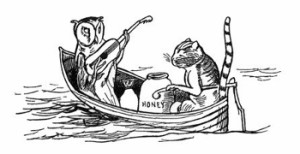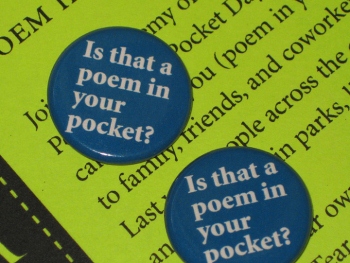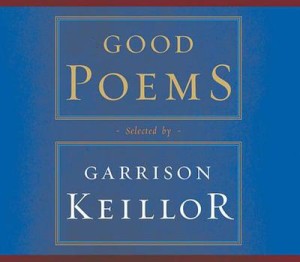For this April’s blog, Curious Cats Read is honored to have poetry lover Carole Johannsen as our guest writer to help us celebrate National Poetry Month.
***
 I once bought a book of poetry as a wedding gift. The bride and groom, a “mature couple,” did not need material things to begin their life together but had requested their guests gift them a copy of a favorite book. Believing, rightly so, that poetry would be underrepresented, I laid upon that pile of exquisitely wrapped volumes, a copy of “Circles on the Water: Selected Poems of Marge Piercy.” I had bookmarked The Perpetual Migration, which begins,
I once bought a book of poetry as a wedding gift. The bride and groom, a “mature couple,” did not need material things to begin their life together but had requested their guests gift them a copy of a favorite book. Believing, rightly so, that poetry would be underrepresented, I laid upon that pile of exquisitely wrapped volumes, a copy of “Circles on the Water: Selected Poems of Marge Piercy.” I had bookmarked The Perpetual Migration, which begins,
“How do we know where we are going?
How do we know where we are headed
till we in fact or hope or hunch
arrive? We can only criticize,
the comfortable say, you don’t know
what you want. Ah, but we do.”
Do not all newlyweds think they know where they are going?
But with stars in their eyes, they need people who love them to describe their best future, and what better than poetry to do that:
“Peace, plenty, the gentle wallow
of intimacy, a bit of Saturday night
and not too much Monday morning,
a chance to choose, a change to grow
the power to say no and yes, pretties
and dignity, an occasional jolt of truth.”
If prose in all its forms is the basic literary diet on which we humans feed, poetry is the fine wine, the crème brûlée, the caviar that makes the meal memorable. We need novels and non-fiction, magazines and newspapers, reports and essays to communicate, to tell our stories real and fanciful, but in poetry we use ever-so-carefully chosen words to express our hearts.
 The American Academy of Poets has established April as National Poetry Month. To celebrate, American Poets, booksellers and libraries, publishers, schools and of course, poets, participate in what is billed as the “largest literary celebration” in the world, including the annual Poem in Your Pocket Day. On this day, which falls on April 30 this year, we are encouraged to carry a poem in our pocket and share it with others throughout the day by reading it, tweeting it, or as I plan to do, making copies to give away.
The American Academy of Poets has established April as National Poetry Month. To celebrate, American Poets, booksellers and libraries, publishers, schools and of course, poets, participate in what is billed as the “largest literary celebration” in the world, including the annual Poem in Your Pocket Day. On this day, which falls on April 30 this year, we are encouraged to carry a poem in our pocket and share it with others throughout the day by reading it, tweeting it, or as I plan to do, making copies to give away.
But if you happen to be among those who think that poetry is “for others,” or you wish you knew more about it, this might be the perfect time to dip your toe in that sun-kissed literary pond.
To do that, you need to find a poet whose words speak to you. If you don’t yet know who that is, first procure an anthology or two compiled by someone who knows about poetry. You can’t do better than to begin with Garrison Keillor’s “Good Poems,” a selection of poetry discovered as he read through a “truckload of poems” to find the few thousand he has read on the radio over the years.
 Keillor’s introduction, prose that it is, offers an elegant argument for indulging in poetry. He explains that people do other things while they listen to the radio, so his chosen poems have to be clear and straight-forward with images that stay in your mind like the last hymn at a church service. No Victorian flowery verses here, but the exquisite imagery and rhythmic song of elegant poetry. My kind of verse!
Keillor’s introduction, prose that it is, offers an elegant argument for indulging in poetry. He explains that people do other things while they listen to the radio, so his chosen poems have to be clear and straight-forward with images that stay in your mind like the last hymn at a church service. No Victorian flowery verses here, but the exquisite imagery and rhythmic song of elegant poetry. My kind of verse!
Here’s what to look for as you leaf through a book of poems: first lines may stop you and you’ll read on; titles, then images please you; and very importantly, the architecture of the poem draws you in, entices you by its shape on the page. When this happens, read that poet slowly and often until you hear the particular melodies and harmonies of her song. One of the many joys of a poem is that it gets better with every reading, just like a tune whose notes you anticipate with pleasure.
It’s spring in the northern hemisphere and winter-weary folk yearn to be outdoors, preferably where things are growing and blooming. Wendell Berry, the poet who abandoned New York City for his ancestral home in Kentucky―and a life of dirt under his nails, well-kept traditions, and meditative walks―is the poet for this season. “Collected Poems, 1957-1982” is a gem. His newest book, “This Day: Collected and New Sabbath Poems,” published in 2013, is magnificent.
And New Englanders, or those who admire from afar, should have a copy of “The Poetry of Robert Frost” on their bookshelf. Read any poem to start; he was never less than wonderful.
If you crave a woman’s voice, the aforementioned Marge Piercy tops my list. Her poetry is sometimes solemn, really funny at other times—her Attack of the Squash People is classic poetic comedy for July in any environs where backyard farmers grow vegetables. “The Moon is Always Female” includes this poem, but better to own “Circles on the Water” (see above) for the full range of her work, including “Squash.”
T.S. Eliot said “April is the cruellest month.” Not so if you bring poetry with you. Indulge—it is balm for the spirit. As for the poem I will carry with me on April 30, it will be Compassion, written by a champion of plain and rich language, the recently-deceased poet from Arkansas, Miller Williams:
“Have compassion for everyone you meet
even if they don’t want it. What seems conceit,
bad manners, or cynicism is always a sign
of things no ears have heard, no eyes have seen.
You do not know what wars are going on
down there where the spirit meets the bone.”

And, which poem will you carry with you?